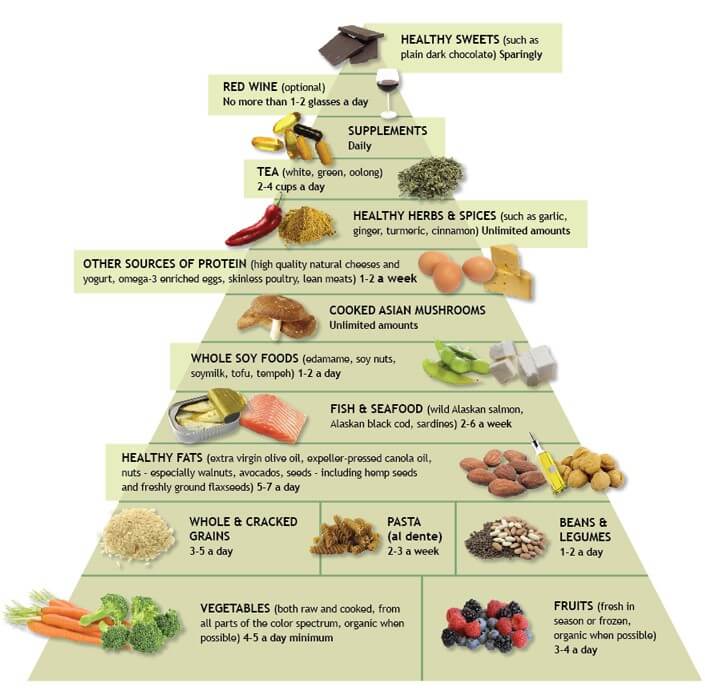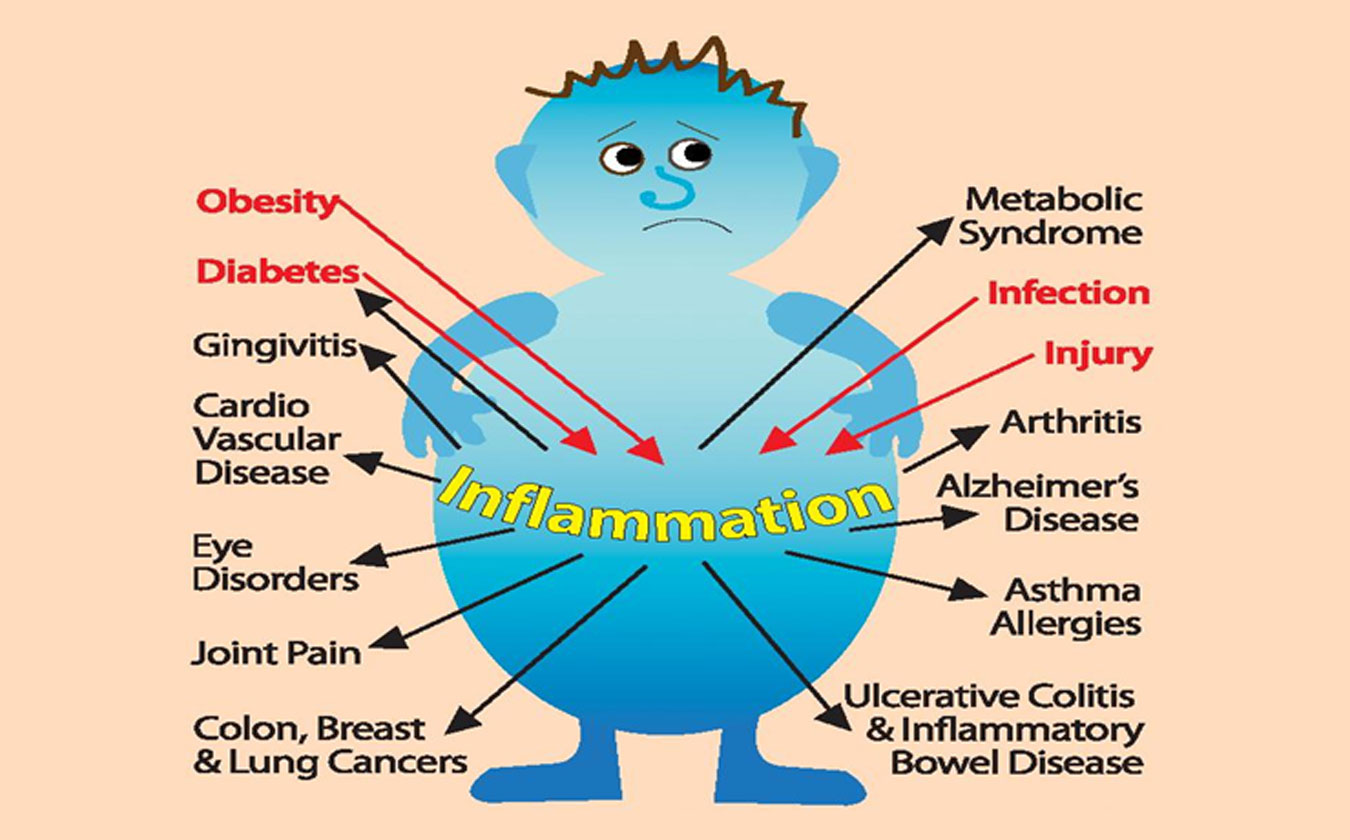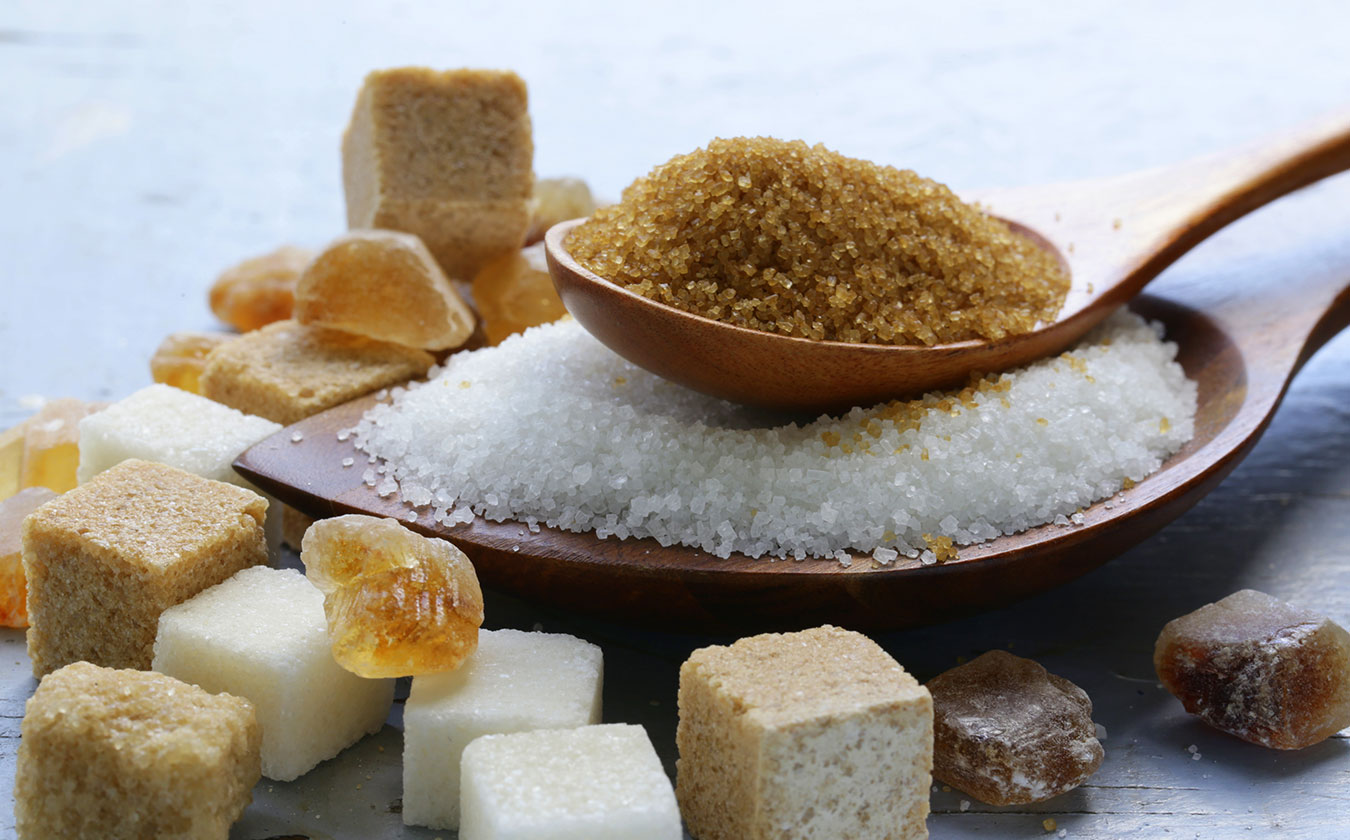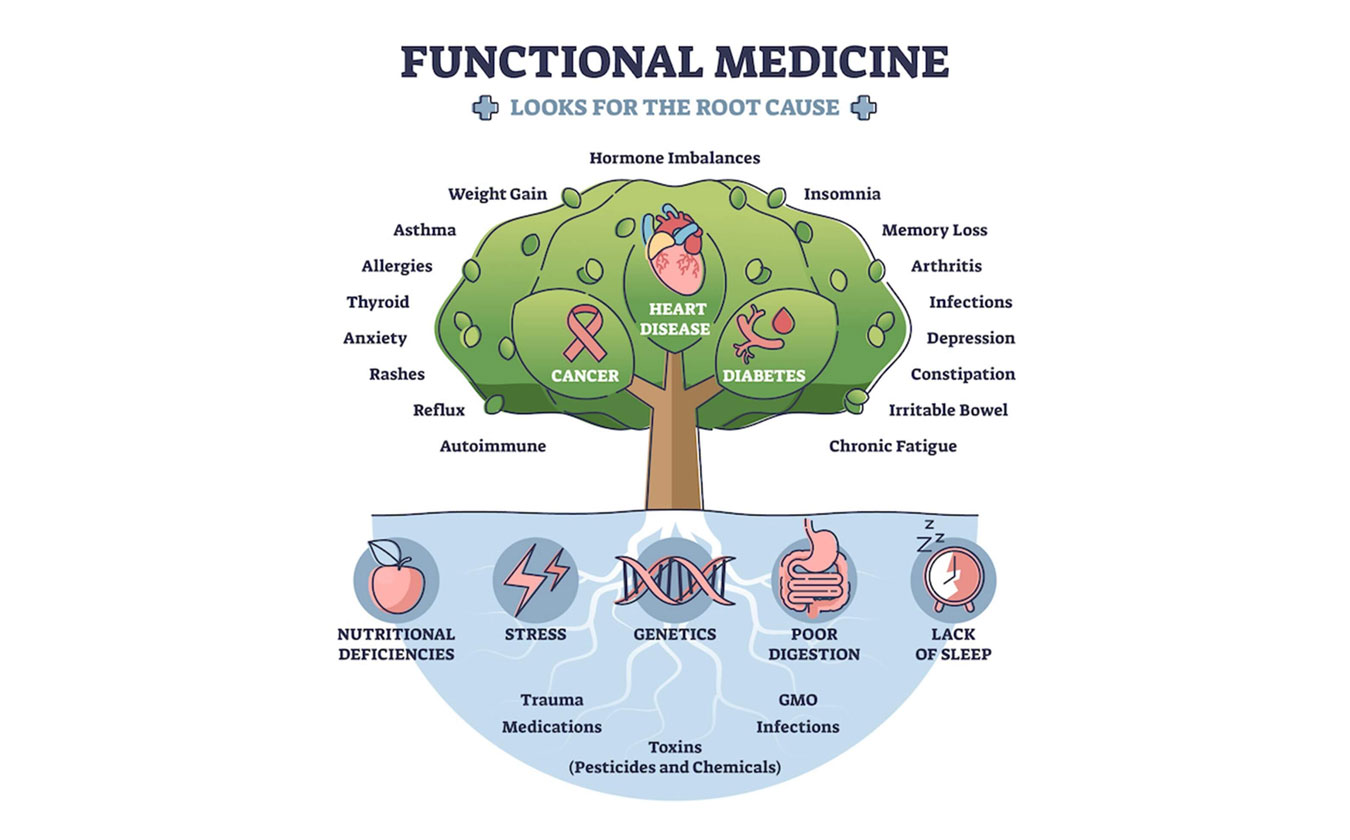Is your body experiencing inflammation? How would you even know?
Inflammation, which literally means “on fire” is one of the main causes of premature aging. There is increasing evidence that inflammation contributes more to cardiovascular diseases than does high cholesterol. New research suggests that inflammation may be the number one cause of cardiovascular disease, cancer, diabetes, arthritis and dementia, the big challenges of aging.When excessive inflammation occurs, tissues that line certain parts of the body – such as the joints, the intestines and especially blood vessels get rough edges and malfunction. The body starts producing excess cytokines, the wear and tear chemicals produced by an immune system out of balance.

The right balance of inflammation protects and heals your body. Let’s say you cut your finger. Your body now takes action to clean and heal the cut. This is called the inflammatory response. Once your skin and tissues are damaged, the potential entry of germs prompts the local cells to send out chemical messengers to mobilize an infection-fighting army at the site. Local cells act like soldiers and engulf the germs at the wound site. You will notice redness, heat and swelling from the extra blood flow to the site, while all these soldiers are at work and heal the wound. As we age, not only do we have fewer immune system soldiers, but sometimes our body produces too many cytokines or soldiers that overfight and trigger excessive inflammation. For unknown reasons, the body overreacts and sends a bigger army to fight the infection. What is even worse, is that sometimes the body’s inflammatory response gets confused and attacks its own tissues, like a restless army arbitrarily picking up fights here and there. This is called an autoimmune response and different organs can get affected, leading to many of the “itis” diseases (arthritis, bronchitis, colitis, dermatitis).The key to a healthy immune response is balance – just enough inflammation to fight infection, repair damaged tissues and slow down aging and not damage healthy tissues and accelerate aging.
10 Ways To Keep Your Body’s Inflammatory Response Balanced
- Stay Lean
Staying lean is the number one way to prevent becoming an Ibod. Excess belly fat promotes excess inflammation. Fat cells are not benign; they pump out proinflammatory chemicals that invade and damage body tissues. A waist size greater than 35 inches for women and 40 inches for men is an indicator of increased risk.
- Eat Fish
Omega-3 oils, especially found in wild salmon, tuna, mackerel, and sardines, are most healthful and also act as anticoagulants, reducing inflammation in the body.
- Change Your Oils
To keep your body in balance, you need to have the right balance of Omega-3 and Omega-6 oils, ideally with a ratio as close to 1:1. Unfortunately, modern diets often have ratios as high as 25:1. Sources of Omega-3s include cold-water fish, krill oil, walnuts, flaxseeds, chia seeds, avocados, and olive oil.
- Add Lots of Colorful Veggies to Your Diet
Dark green, light green, red, orange, yellow, purple, and white vegetables and fruits contain phytochemicals, which prevent oxidation or rusting in our bodies. This helps to prevent premature aging and disease.
- Stabilize Your Insulin
Insulin determines whether your body is in a proinflammatory or anti-inflammatory state. High insulin levels lead to more inflammation and may even promote cancer cell growth. Eating the right carbohydrates, having a high-fiber diet, eating six smaller meals daily instead of three big ones, and exercising for 30 minutes daily are effective ways to stabilize insulin levels.
- Move More
People who engage in moderate to vigorous exercise at least three times a week have lower levels of inflammatory chemicals in their blood. Exercise blocks the enzyme D5D, which converts Omega-6 oils into arachidonic acid, an inflammatory chemical.
- Stay Calm
Excessive and unresolved stress causes the body to release excess stress hormones, mainly cortisol, which can trigger inflammation.
- Breathe Clean Air
Breathing polluted, toxic air increases levels of inflammatory substances in the blood. Ensuring clean air is crucial for maintaining a healthy body.
- Take Care of Your Gums
Good dental health is essential to prevent inflammation. Gingivitis, a common gum condition, can be a source of inflammation entering the body.
- Stay Away from Gluten, Dairy, Transfats, and Sugar
Gluten, a wheat-based protein, can be hard to digest for many people. Dairy, especially if not organic, can trigger inflammation in lactose-intolerant individuals. Transfats, hydrogenated oils, and sugar are linked to diseases such as Alzheimer’s, heart disease, and cancer. Reducing or avoiding these can significantly lower inflammation.
What does an anti-inflammatory diet look like?
Dr. Weil’s Anti-Inflammatory Diet is an easy way to get more anti -inflammatory foods into your day. It would help to limit wine to no more than 1-2 times a week @ no more than 5 oz.











